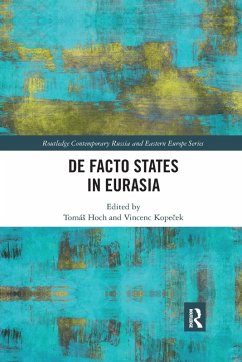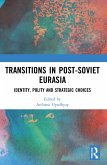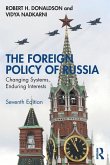This book explores the phenomenon of de facto states in Eurasia: states such as Abkhazia, Nagorno-Karabakh, and the Transnistrian Moldovan Republic. It examines how they are formed, what sustains them, and how their differing development trajectories have unfolded. It argues that most of these de facto states have been formed with either direct or indirect support from Russia, but they all have their own internal logic and are not simply puppets in the hands of a powerful patron. The book provides detailed case studies and draws out general patterns, and compares present-day de facto states with de facto states which existed in the past.
Eurasia's De Facto States is a welcome addition to the broader literature on sovereign anomalies. It covers emerging de facto states like Donetsk and Luhansk and is historically innovative in examining early twentieth century cases. The book pursues a comprehensive life cycle analysis of the birth, life and death of de facto states. Strong conceptual frameworks drive the case study analysis. It is outstanding on not treating the Eurasian de facto states as Russian puppets but rather seeing them as polities with their own internal logics whose fates are ultimately decided by an evolving mix of internal and external factors.
- Scott Pegg, Professor, Department of Political Science, Indiana University Purdue University Indianapolis and author of International Society and the De Facto State.
- Scott Pegg, Professor, Department of Political Science, Indiana University Purdue University Indianapolis and author of International Society and the De Facto State.
Eurasia's De Facto States is a welcome addition to the broader literature on sovereign anomalies. It covers emerging de facto states like Donetsk and Luhansk and is historically innovative in examining early twentieth century cases. The book pursues a comprehensive life cycle analysis of the birth, life and death of de facto states. Strong conceptual frameworks drive the case study analysis. It is outstanding on not treating the Eurasian de facto states as Russian puppets but rather seeing them as polities with their own internal logics whose fates are ultimately decided by an evolving mix of internal and external factors.
- Scott Pegg, Professor, Department of Political Science, Indiana University Purdue University Indianapolis and author of International Society and the De Facto State.
- Scott Pegg, Professor, Department of Political Science, Indiana University Purdue University Indianapolis and author of International Society and the De Facto State.









